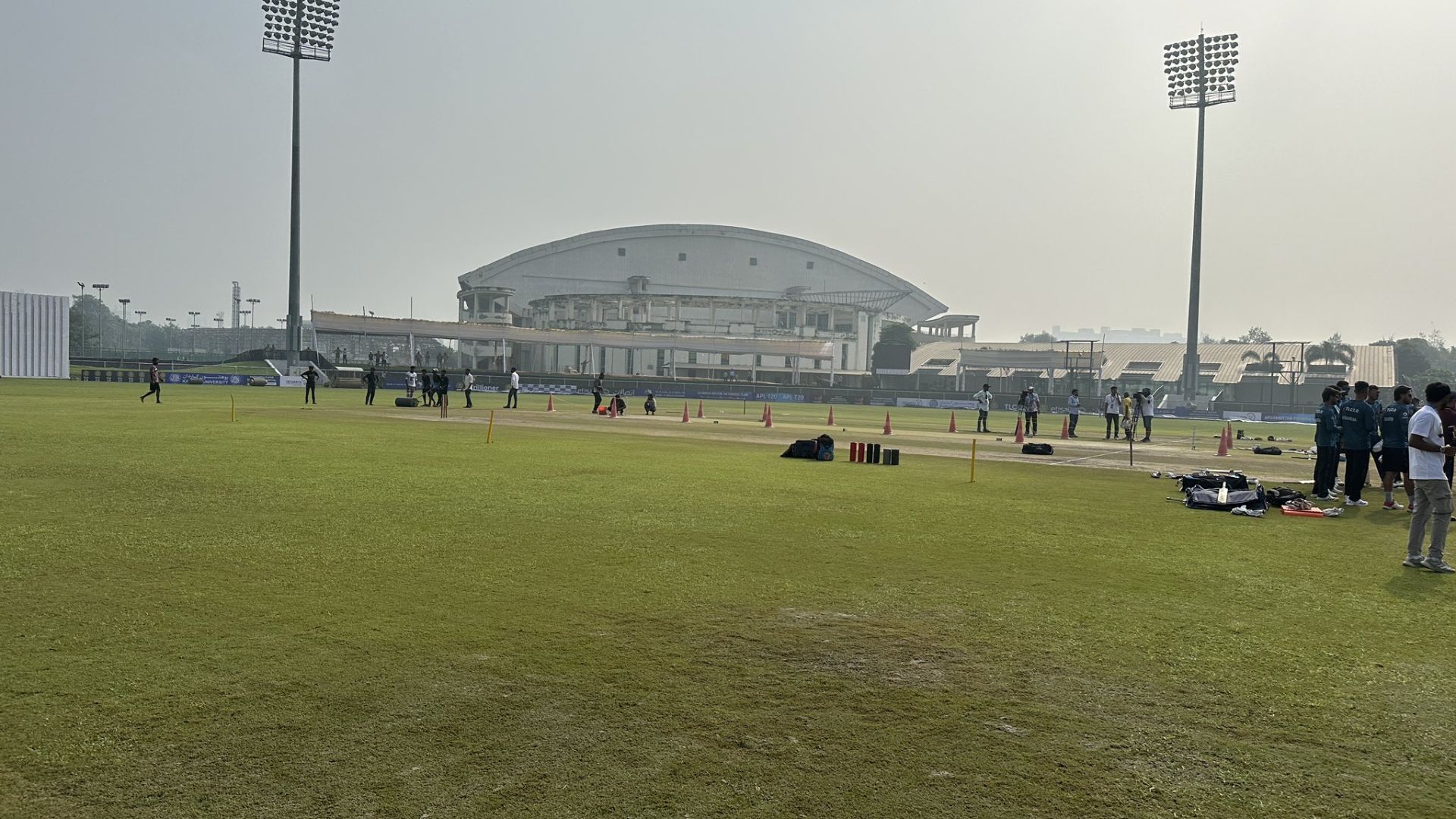
Explained: Why was the Greater Noida stadium banned by the BCCI? Why is it hosting a Test again?
The Greater Noida Stadium has been in the headlines for all the wrong reasons. The venue was assigned to host the one-off Test between New Zealand and Afghanistan, but the contest has yet to witness a single ball, primarily because of the venue's poor state and facilities rather than the weather.
There was rainfall on the eve of the contest, but even though the weather has cleared since, the outfield is yet to be dried out. After the first day was abandoned, the second day was met with despair-filled scenes. Groundsmen attempted to dry out a wet patch of the outfield with fans, but it hardly made an impact.
They ramped things up by digging up the damp patch, and then filling it with artificial grass and even dry patches cut from the practice facility. Some media outlets have hilariously termed this entire process as a 'transplant'.
Although the clash between New Zealand and Afghanistan is not part of the World Test Championship (WTC) cycle, it is still a contest under the International Cricket Council's (ICC) umbrella. Such playing conditions are hardly a good advertisement for Test cricket, especially at a time when the format is struggling to stay relevant.
To make matters worse, the woes at the venue are not confined simply to the pitch and outfield. Reporters covering the game have complained of a lack of basic necessities, making it far from a memorable experience.
The absence of a dedicated media box, washrooms for female officials, and a lack of water have all been highlighted by journalists at the venue over the last two days.
The Greater Noida Stadium was banned by the BCCI for hosting a private league
The venue has hosted matches of relevance in the past, beginning with a pink-ball clash during the 2016 Duleep Trophy and a few select Ranji Trophy encounters as well. Later that year, it received ICC's approval to host international matches. However, with India already boasting a plethora of venues, the stadium was assigned to host Afghanistan's 'home' matches.
It hosted a five-match ODI series between Afghanistan and Ireland in 2017, as well as two separate three-match T20I series in 2017 and 2020 respectively.
The stadium faced a ban in 2017 after BCCI's anti-corruption unit discovered that it was leased to host a private league, which involved match-fixing. Since then, no BCCI-affiliated matches have been held there. However, since it was an ICC-approved venue, it continued to host Afghanistan's matches during the ban.
Why were the hosting duties given to Noida?
The timing of the Test played a crucial role in Noida being named as the host. With September marking the start of the home season for India, the majority of the venues are preparing for the same.
The Afghanistan Cricket Board (ACB) had requested the Board of Control for Cricket in India (BCCI) one of Lucknow or Dehradun to play the clash against New Zealand. However, with both venues being in use for the respective state units' T20 League, the unused venue in Noida, where Afghanistan have played in the past, became the sole choice.
"Our first choice was the Lucknow stadium and the second was Dehradun. Our requests were rejected by the BCCI and we were told that both the states are hosting their respective T20 leagues. This was the only ground available and we had no other choice left," an Afghanistan Cricket Board (ACB) official told The Indian Express.
"This is a huge mess, we are never coming back here. The players are also unhappy with the facilities here. We had spoken with the concerned people well in advance and were assured by the stadium guys that everything will be in order," the official added
Afghanistan had signed a Memorandum of Understanding (MoU) with the BCCI in 2015 over playing their home matches in Noida. With the volatile Taliban situation, Afghanistan have sought help from other nations to play their home matches.
In 2022, they signed an agreement with the Emirates Cricket Board (ECB) to play their home fixtures for the next five years, provided they played a bilateral series against UAE every year.
They are next set to play a three-match ODI series against South Africa in Sharjah as the 'home' side.